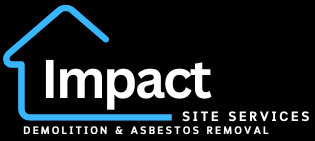How to Choose an Asbestos Removal Contractor in NSW
Asbestos removal is a critical task that requires expertise, precision, and adherence to strict safety protocols. If you own property in New South Wales (NSW) and suspect the presence of asbestos, hiring a qualified asbestos removal contractor is essential. Choosing the right professional ensures your safety, legal compliance, and peace of mind. Here’s a comprehensive guide to help you make the best decision.
1. Understand Why You Need an Asbestos Removal Contractor
Asbestos was widely used in construction materials until its dangers became evident. Prolonged exposure to asbestos fibers can cause severe health issues, including asbestosis, mesothelioma, and lung cancer.
In NSW, strict regulations govern the removal and disposal of asbestos. DIY removal is not only unsafe but also illegal in many cases. A licensed contractor has the tools, training, and certifications to handle asbestos safely and in compliance with NSW Work Health and Safety (WHS) regulations.
2. Verify Licensing and Certification
NSW requires asbestos removal contractors to hold the appropriate licenses issued by SafeWork NSW. These licenses fall into two categories:
- Class A License: For removing friable (loose and easily crumbled) asbestos, which poses a higher risk.
- Class B License: For non-friable (bonded) asbestos removal, typically found in cement sheets and roofing.
Always ask the contractor for their license number and verify it with SafeWork NSW’s online database to ensure validity.
3. Check Insurance Coverage
An asbestos removal contractor must have proper insurance coverage, including:
- Public Liability Insurance: To cover potential damages or accidents during the removal process.
- Professional Indemnity Insurance: For errors or omissions in their work.
Adequate insurance ensures that you are not held liable for any mishaps during the project.
4. Assess Their Experience and Reputation
Experience matters in asbestos removal. Ask contractors about their:
- Years of Operation: Companies with a long history typically have a proven track record.
- Past Projects: Request references or case studies to understand their expertise.
- Customer Reviews: Look for online testimonials, Google reviews, or recommendations on platforms like Hipages or True Local.
A reputable contractor should be transparent about their experience and willing to provide client references.
5. Ensure Compliance with NSW Regulations
In NSW, strict laws govern asbestos management. A reliable contractor will:
- Conduct a detailed site inspection to identify asbestos-containing materials (ACMs).
- Provide a comprehensive asbestos management plan outlining the removal process.
- Use proper protective equipment (PPE) and follow safety protocols.
- Dispose of asbestos waste at licensed facilities and provide you with a waste disposal certificate as proof.
Non-compliance can lead to hefty fines and environmental hazards, so ensure the contractor adheres to all legal requirements.
6. Ask About Equipment and Techniques
Asbestos removal requires specialised equipment and methods to minimise the risk of fiber release. A professional contractor should use:
- HEPA-filtered vacuum systems.
- Sealed containment areas to prevent contamination.
- Proper decontamination units for workers and equipment.
Discuss these aspects to ensure the contractor prioritises safety at every stage.
7. Compare Quotes, But Don’t Focus Solely on Price
While cost is a significant factor, the cheapest option isn’t always the best. A lower quote might indicate a lack of experience, inadequate equipment, or shortcuts in safety measures.
Request detailed, itemised quotes from multiple contractors. Compare their scope of work, safety measures, and timelines before making a decision.
8. Look for Additional Services
Some contractors offer value-added services that can make the process smoother, such as:
- Pre-removal asbestos testing: To confirm the presence of asbestos.
- Post-removal clearance inspections: Conducted by independent assessors to ensure your property is safe.
- Demolition or renovation services: For seamless project management if the removal is part of a larger construction project.
9. Ensure Clear Communication
A trustworthy contractor will communicate openly and transparently about every aspect of the process, including:
- Potential risks involved.
- Timelines for project completion.
- Necessary preparations you may need to make before the work begins.
Clear communication builds trust and ensures there are no misunderstandings.
10. Evaluate Their Safety Record
Safety should be the top priority in asbestos removal. Ask contractors about their:
- Incident history or safety violations, if any.
- Compliance with WHS safety standards.
- Training programs for their team members.
A contractor with a stellar safety record demonstrates their commitment to protecting you, their workers, and the environment.
11. Consider Environmental Responsibility
Disposing of asbestos improperly can have serious environmental repercussions. Ensure the contractor:
- Uses licensed disposal facilities.
- Provides waste tracking documentation.
- Follows NSW Environmental Protection Authority (EPA) guidelines.
Hiring an environmentally responsible contractor reflects your commitment to sustainability and community safety.
12. Trust Your Instincts
Finally, trust your instincts. If something seems off—whether it’s vague responses, lack of proper documentation, or pushy sales tactics—it’s better to explore other options.
Conclusion
Choosing an asbestos removal contractor in NSW is not a decision to take lightly. By following this guide, you can ensure you hire a qualified, experienced, and trustworthy professional who prioritises safety and compliance.
Taking these steps will not only protect your health and property but also ensure the job is done right the first time, giving you peace of mind and a safer environment.
For more information about asbestos safety in NSW, visit the SafeWork NSW website or consult local authorities for guidance.

